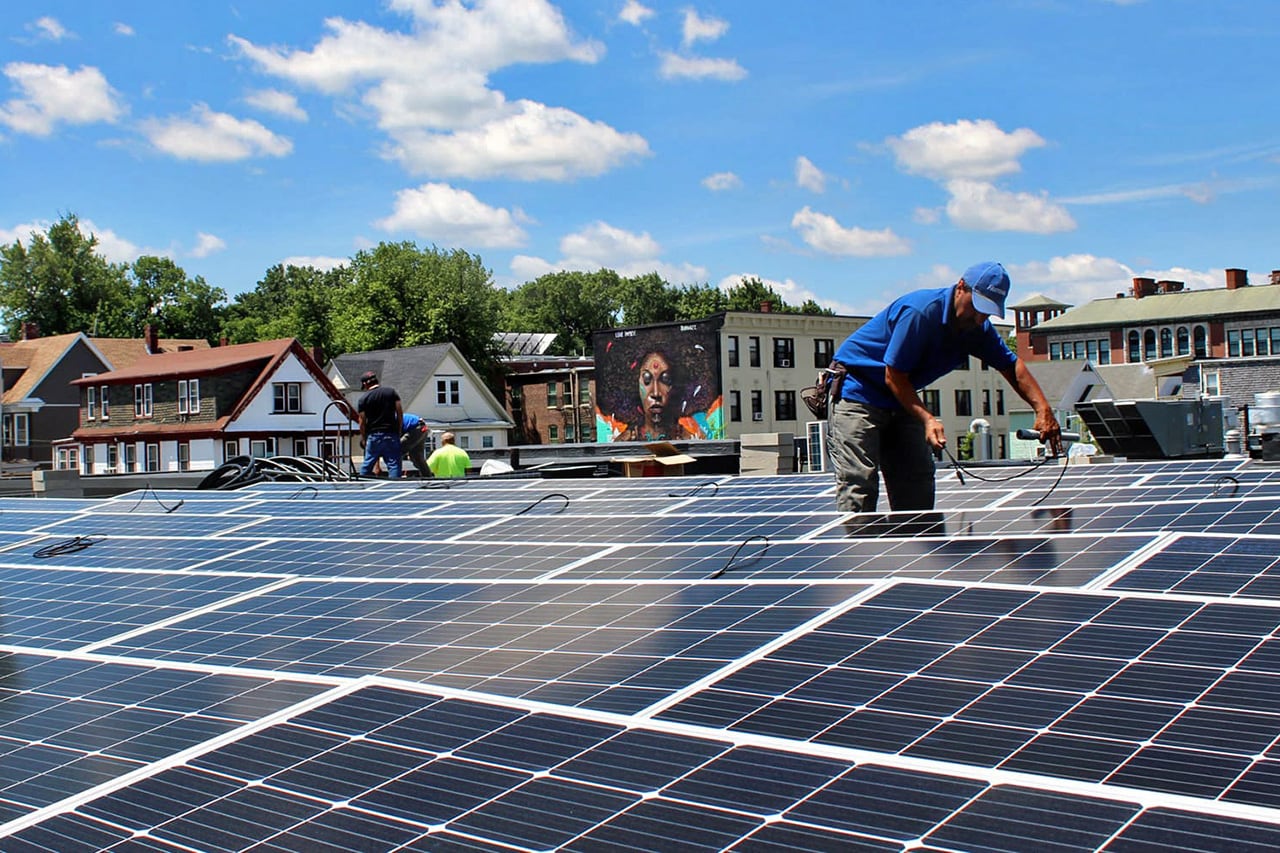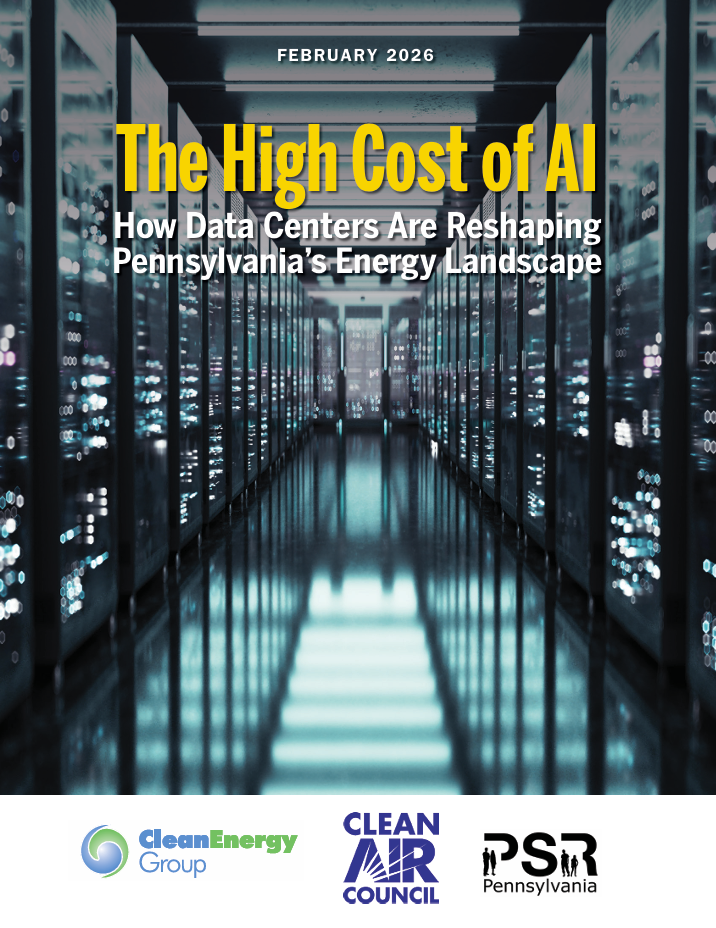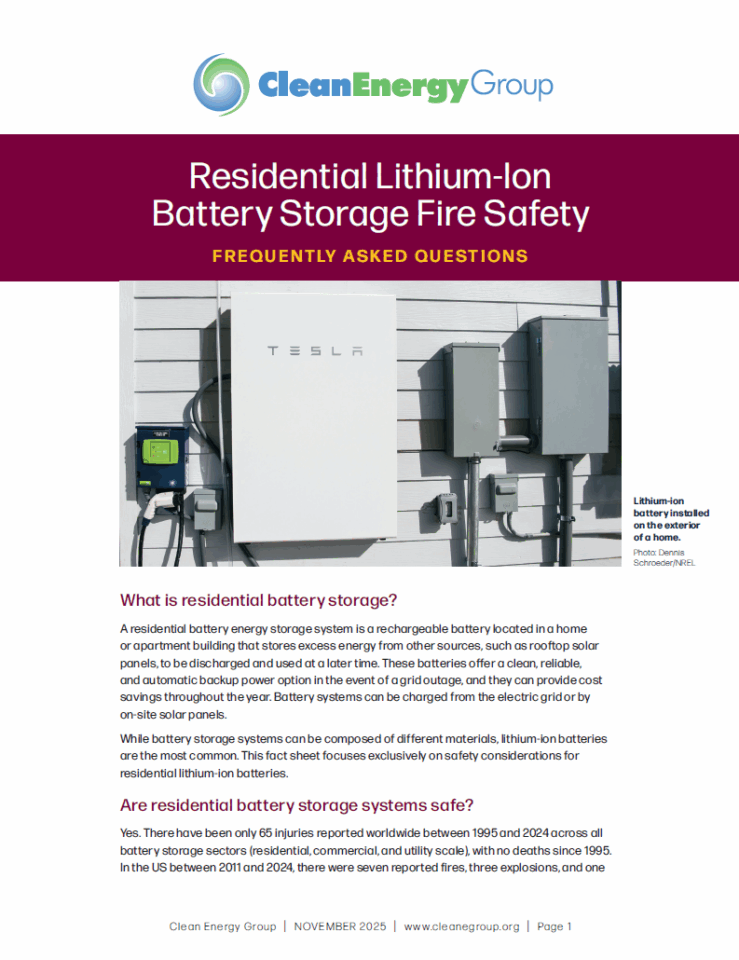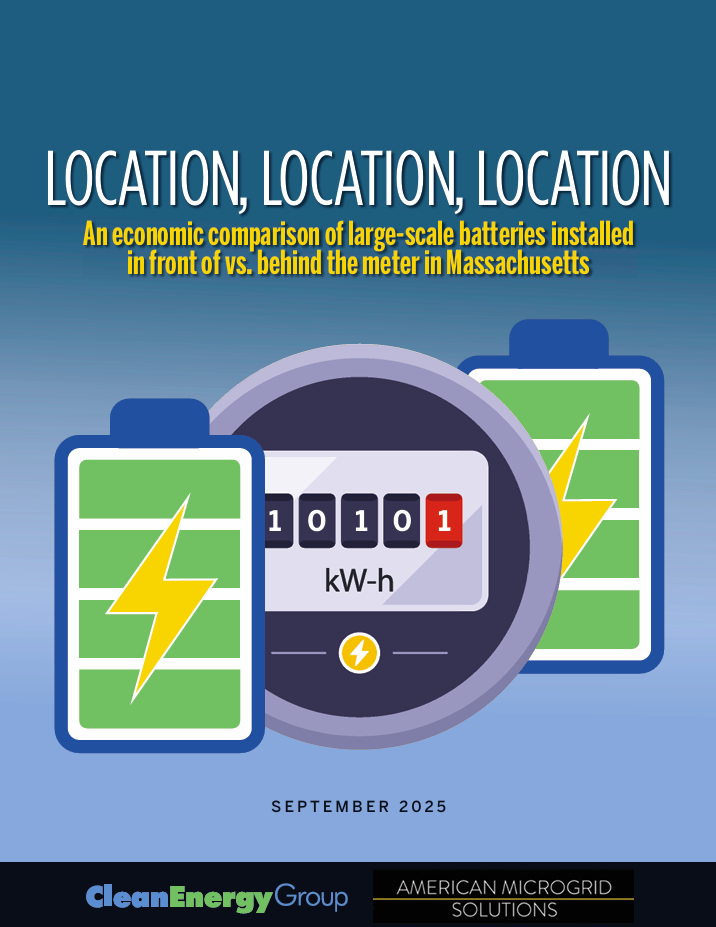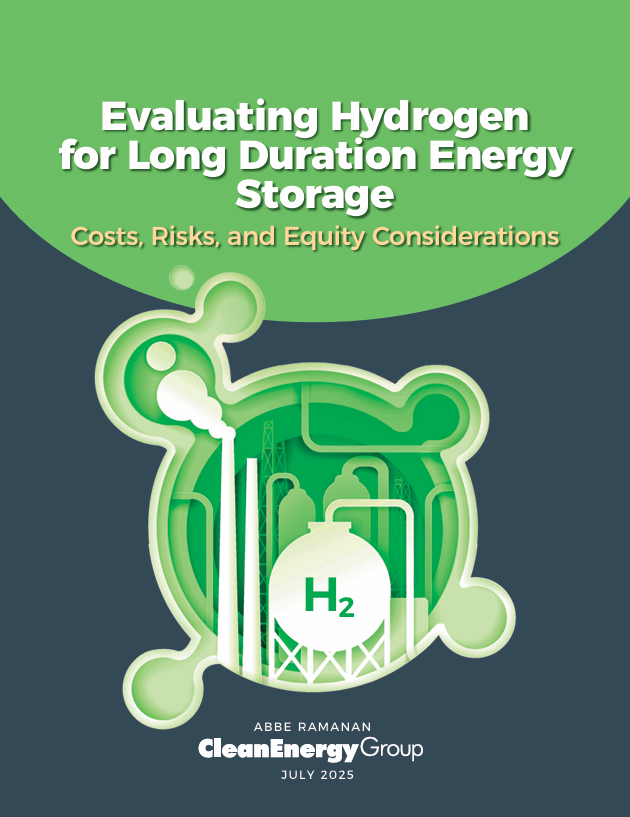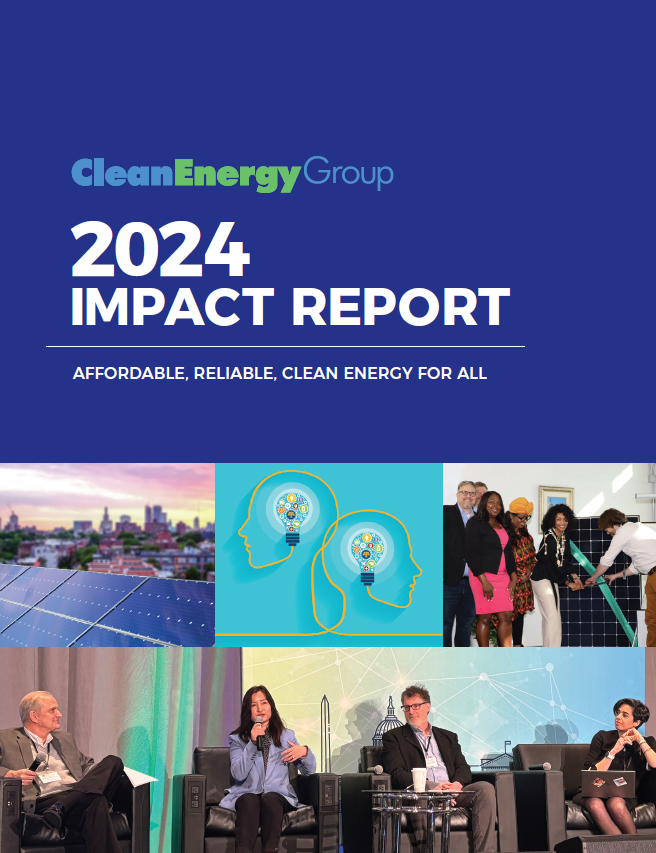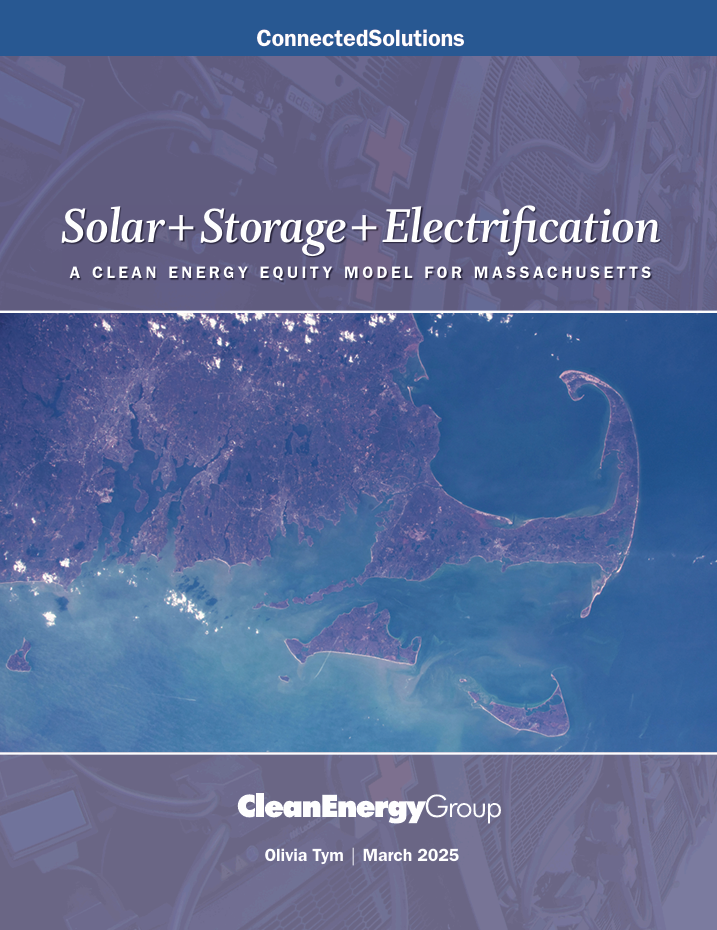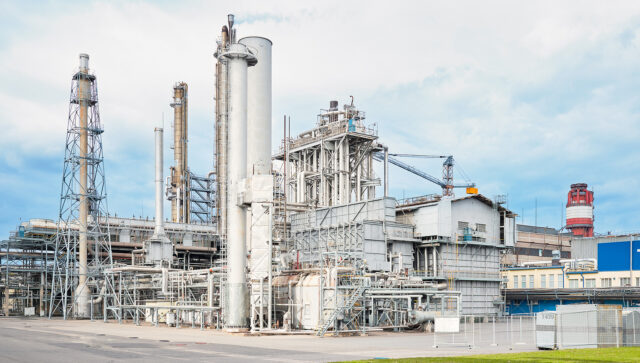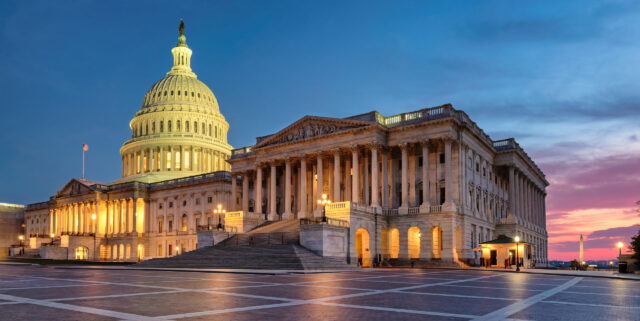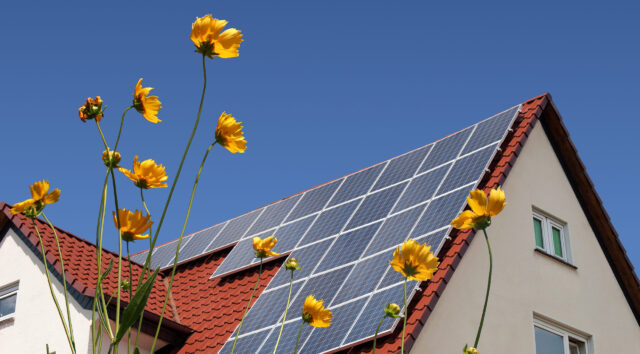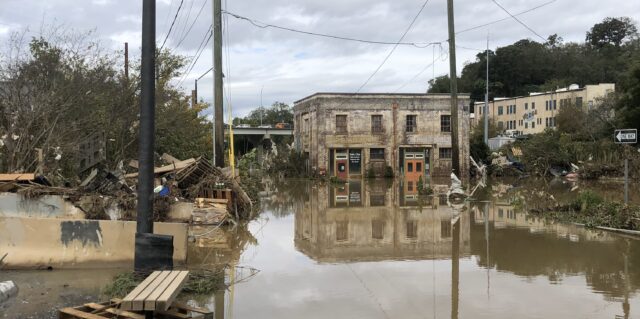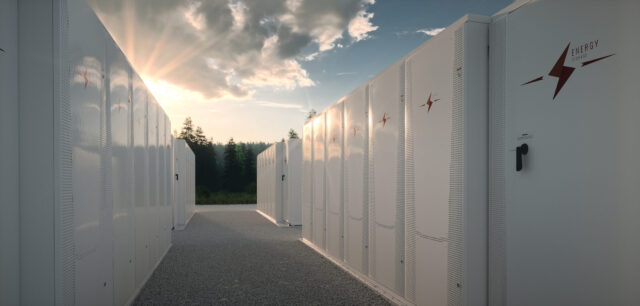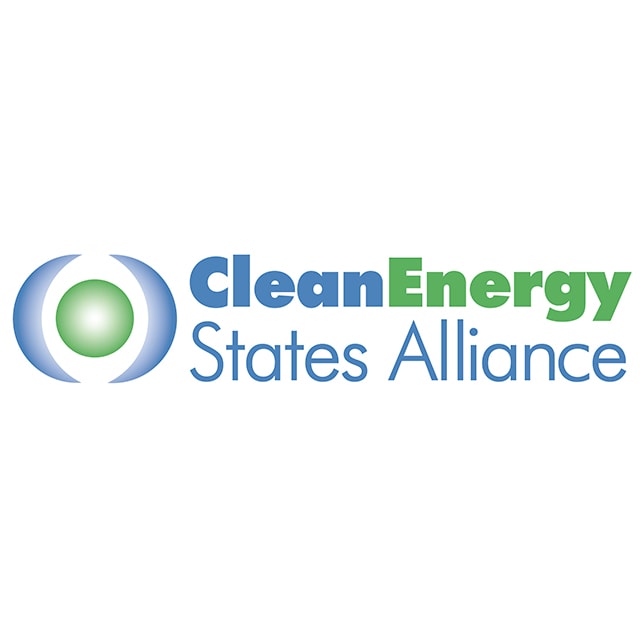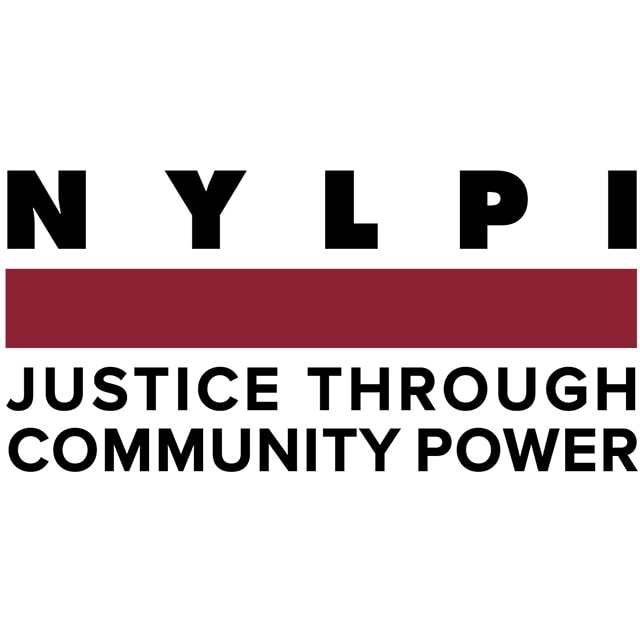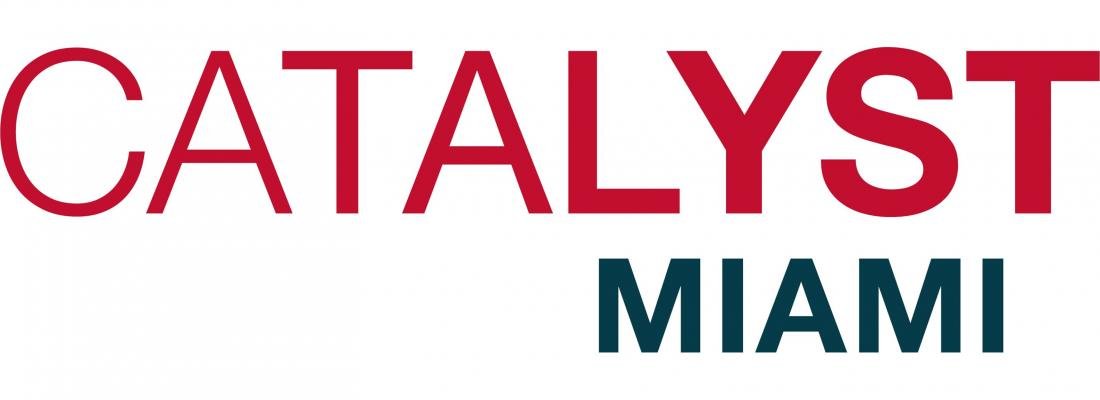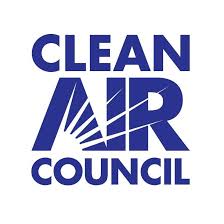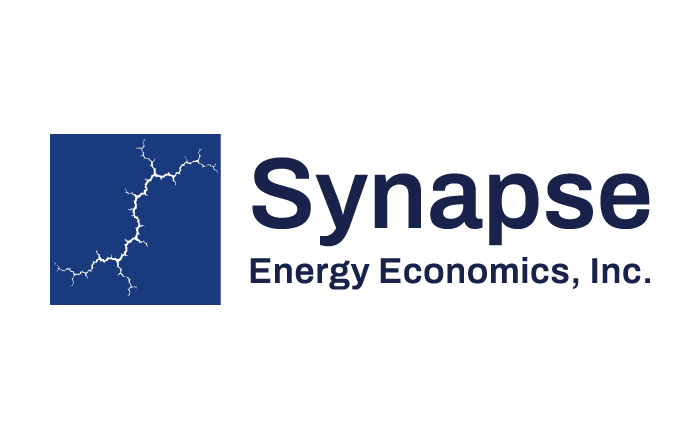Clean Energy Group
What We Do
Foster collaboration across a broad community of diverse organizations
Develop and disseminate accessible information and resources to advance innovative energy solutions
Provide trusted expertise and analysis supporting community-led clean energy development
Inform inclusive clean energy programs, policies, and regulations

Phase Out Peakers
Replacing peaker power plants with clean alternatives in environmental justice communities.

Distributed Energy Storage, Efficiency, and Demand Response
Unlocking the potential of customer-sited resources to improve the energy system.
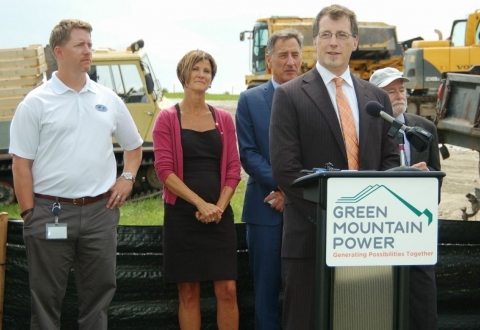
Energy Storage Policy and Regulation
Advancing energy storage policies, programs, and regulations to accelerate an equitable clean energy transition.
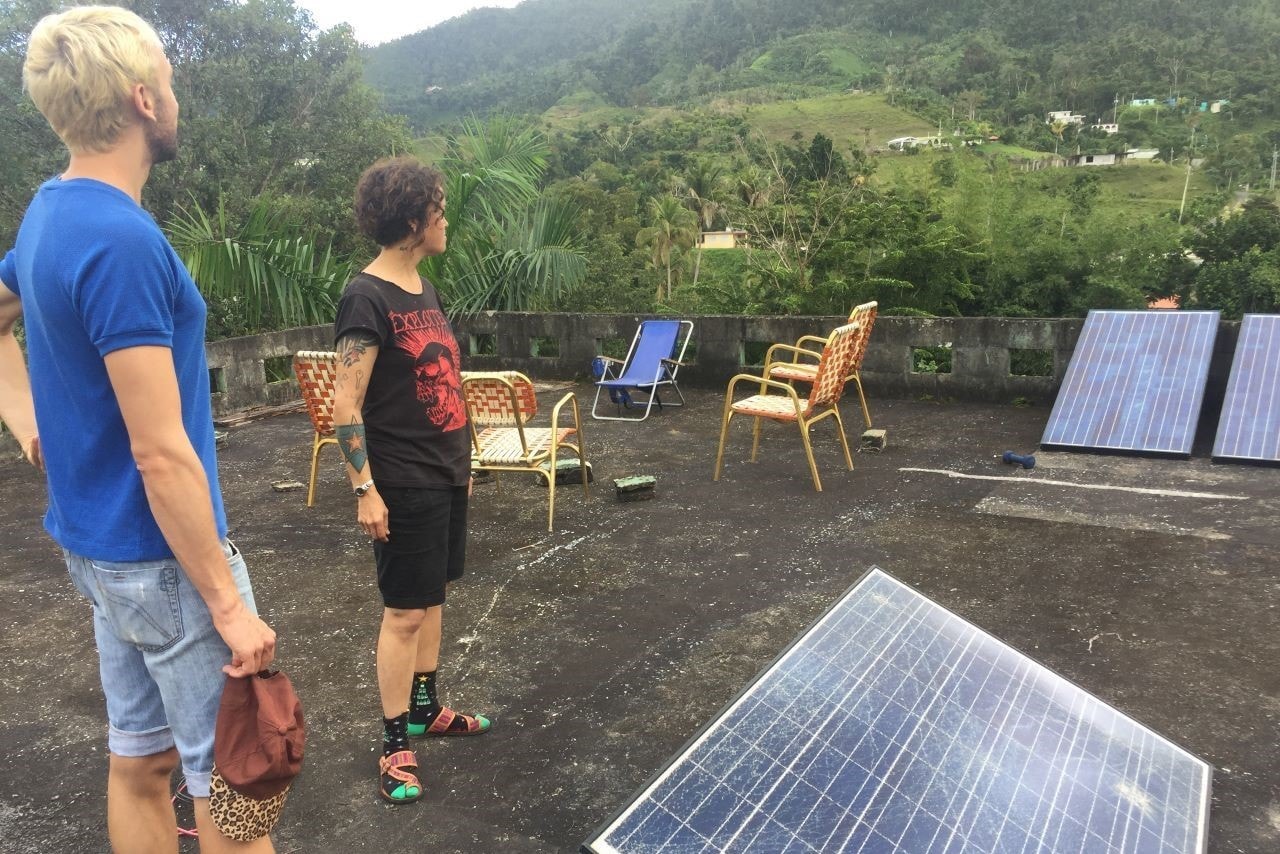
Resilient Power Leadership Initiative
Building community-based capacity for more energy resilient communities.
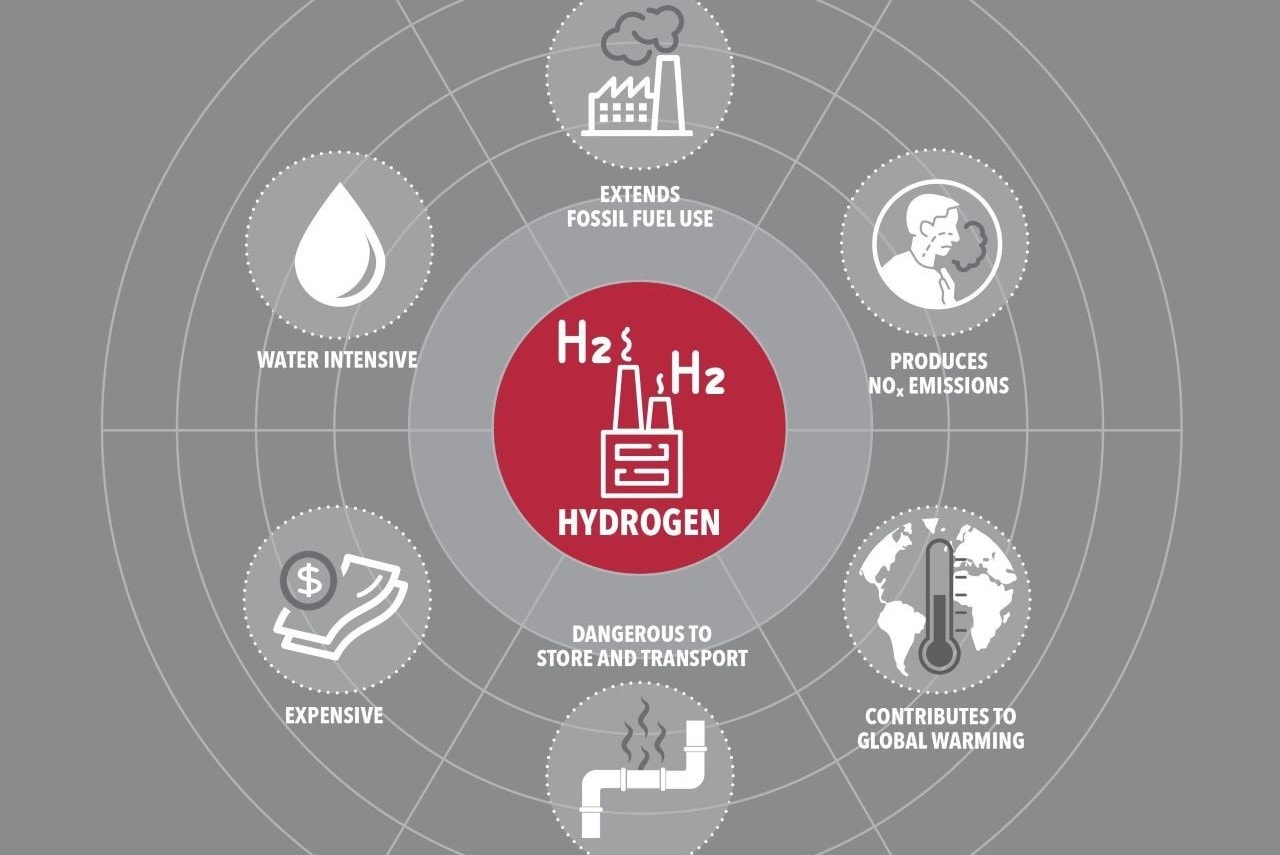
Hydrogen Information and Public Education
Raising awareness of the health and environmental impacts of hydrogen production and use.
Who We Serve
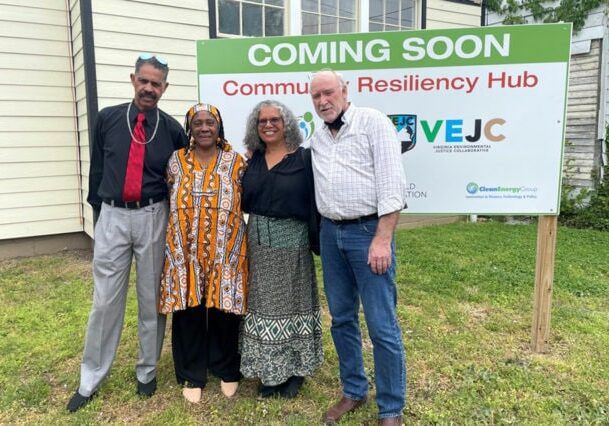
Community-Based Organizations
CEG collaborates with community-based organizations to implement clean, resilient power solutions, providing technical assistance to dozens of organizations each year to protect community members during power outages. CEG develops introductory guides and fact sheets to help address knowledge gaps and build local capacity.
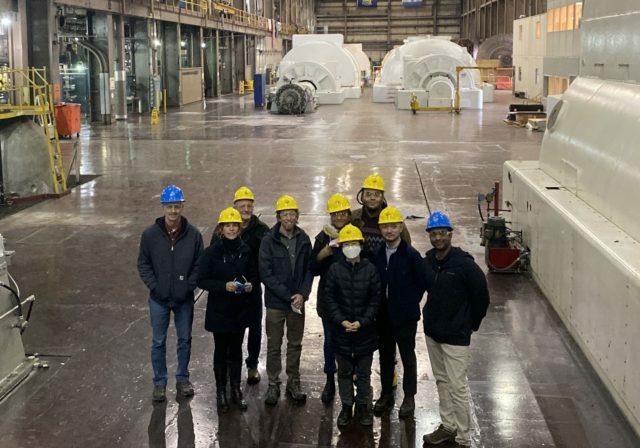
Environmental Justice Advocates
CEG partners with environmental justice advocates across the country to fight for clean alternatives to polluting fossil power plants and combat harmful false solutions. Partnerships include collaborative initiatives with the PEAK Coalition in New York City and the Clean Peak Coalition in Massachusetts.

State and Local Government Leaders
CEG works with state agencies to advance equitable clean energy policy, like climate resilient energy codes for affordable housing and innovative distributed energy storage programs. CEG assists states and municipalities in developing resilient power solutions for community-serving facilities, including community centers, fire stations, and affordable housing.
Webinars
Blog
Green hydrogen is not a silver bullet to decarbonize the fertilizer industry
Earlier this year, Yara, the world’s largest ammonia distributor, cancelled some of their green hydrogen projects citing cost concerns. This follows the trend of companies scrapping or scaling back their clean hydrogen plans, no doubt escalated by the early retirement of the 45V clean hydrogen tax credit. Yara planned to use this green hydrogen to produce ammonia, made by pairing hydrogen…
Three of the biggest harms from irresponsible data center development – and what communities can do to fight back
The unrestricted build-out of data centers across the country is threatening energy affordability, grid reliability, public health and state climate goals. A recent analysis found that at the current rate of expansion, US data centers will add an additional 44 million metric tons of CO2 to the atmosphere annually and will drain up to 1,125…
Batteries, Batteries Everywhere: Battery-Powered Appliances are Reshaping the Electric Grid
In the not-so-distant past, home batteries were the domain of the early adopters: the solar fanatic with a Powerwall tucked in the garage or the off-grid enthusiast living by their own rules. But that is changing fast. Along with a rapid increase in home battery system installations, batteries are finding their way into the appliances…
Green hydrogen and ammonia are making waves in the shipping industry; will they do more harm than good?
In early March, a large ship made its way into Southampton’s port on the south coast of the UK. A green circle and the words “leading the way to real zero” plastered on the side sent a message: this isn’t your average ship. Named “Green Pioneer” and owned by Australian mining and green hydrogen giant…
Still Considering Solar and Storage? Run, Don’t Walk.
In the six weeks between the release of the House of Representatives’ version of the “One Big Beautiful Bill Act” (OBBBA) and President Trump’s signing of the final legislation, a decade of progress towards achieving cleaner, more reliable energy infrastructure was reversed. The speed with which the bill passed, combined with the severity of changes…
What Nonprofits Need to Know about the Investment Tax Credit in 2025
In the July 2025 “One Big Beautiful Bill Act,” Congress terminated key aspects of the Investment Tax Credit (ITC) for solar and wind projects and created barriers for projects pursuing energy storage and other zero emissions technologies. Under the revised ITC guidelines, solar and wind projects must begin construction by July 4, 2026, or be…
Hydrogen Got a Reprieve in the Reconciliation Bill, but It Needs More Than That to Be Cost Competitive
Utilities in at least 18 states are developing “hydrogen-ready” combined cycle (CC) or combustion turbine (CT) power plants. These plants are part of a larger shift towards maintaining a reliance on fossil fuel infrastructure, both by building new plants and keeping old ones online, spurred by a pro-coal and gas administration and fearmongering around grid…
Resilient Power in the Wake of Hurricane Helene
One of the things I cherish most about Western North Carolina is its patchwork of small, close-knit communities nestled among mountains and valleys, all interconnected by an endless web of creeks and streams. Many of these communities are rural and secluded, a contrast to the region’s population center of Asheville, where I live. Although beautiful…
Hydrogen production’s unbreakable ties to fossil fuels in the US
For the past few years, hydrogen has been proposed as a method of reducing emissions in almost every sector, from energy production, to transportation, to manufacturing. This has led to a boom in proposed hydrogen production plants, mainly focused on so-called low carbon hydrogen. But hydrogen production isn’t new. This gas has long been used…
Long-Duration Energy Storage: What Is It, Why Do We Need It, and When Will It Get Here?
There has been a lot of excitement in the energy world around the promise of long-duration energy storage (LDES) and emerging technologies challenging the dominance of lithium-ion batteries. National and international consortiums have sprung up to advance the sector, LDES businesses have surpassed billion-dollar investment milestones, and leading states have established the first LDES procurement…
In the News & Press Releases
Why I’m Getting a Home Battery Backup Before the Next Outage
This Wall Street Journal article outlines the basics of getting home battery storage instead of gas generators, with input from CEG’s Marriele Mango.
Require a gas unit to add 90 MW of batteries to renew its air permit, group says
This pv magazine article highlights CEG’s comments on Calpine Mid-Atlantic Energy’s gas-fired generating unit in Vineland, New Jersey. The comments urge Calpine to install a battery storage system to reduce the unit’s level of operation and air pollution.
Our Partners
Partnership is a hallmark of our work and critical to our success. Clean Energy Group collaborates with community-based organizations, environmental justice organizations, nonprofit advocates, state and federal agencies, national laboratories, and other clean energy experts across the country.








